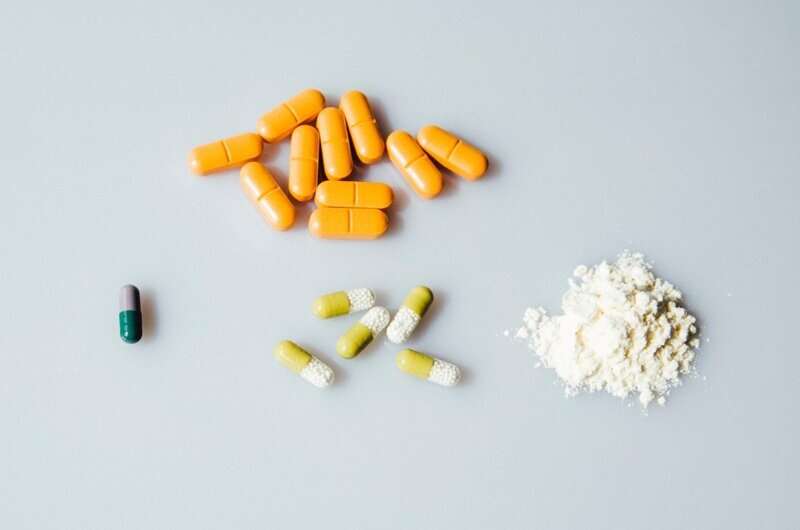This article has been reviewed according to Science X's editorial process and policies. Editors have highlighted the following attributes while ensuring the content's credibility:
fact-checked
peer-reviewed publication
proofread
Treating amphetamine use disorder with stimulants: An encouraging new approach

A new study has found that it may be possible to use stimulants to treat stimulant use disorder. People with amphetamine-type stimulant use disorder who are treated with prescription psychostimulants such as methylphenidate and dextroamphetamine (commonly used to treat attention deficit hyperactivity disorder (ADHD)) may lower both their craving and stimulant use, especially if such treatments are administered at high doses.
This study, published in Addiction, was led by Dr. Jutras-Aswad, a researcher at the CHUM Research Centre and a professor of psychiatry and addictology at Université de Montréal.
Although amphetamine-type stimulant (ATS) use disorder is a major global health issue, there is no established pharmacotherapy recommendation for its treatment.
"Not only is there no widely approved pharmacological intervention for ATS use disorder," says senior author Dr. Didier Jutras-Aswad, "but the US Food and Drug Administration—the FDA—has just asked for feedback on its new draft guidance for developing treatments for cocaine, methamphetamine, and prescription stimulant use disorders. Many countries are looking to improve their approach to support people with such disorders. We hope our research can help guide the next wave of research and recommendations in this field."
The study pooled the results of ten randomized controlled trials (RCTs) with a total of 561 participants, comparing the treatment of amphetamine-type stimulant use disorder with methylphenidate or dextroamphetamine to placebo. The effects of these drugs on reducing amphetamine use and cravings was modest across the ten RCTs, but Jutras-Aswad and his co-authors found that the effects might increase with higher dosage.
Methylphenidate and dextroamphetamine are commonly used to treat ADHD at maximum daily doses of 108 mg and 50 mg for adults. This research suggests that people with long-term high-dose exposure to amphetamines may require psychostimulant doses that are higher than the clinical recommendations for ADHD. Preferred treatments by people with ATS use disorders, optimal doses, and combination with other non-pharmacological interventions would need to be worked out in future studies.
More information: Prescription psychostimulants for the treatment of amphetamine-type stimulant use disorder: A systematic review and meta-analysis of randomized placebo-controlled trials, Addiction (2023). DOI: 10.1111/add.16347



















